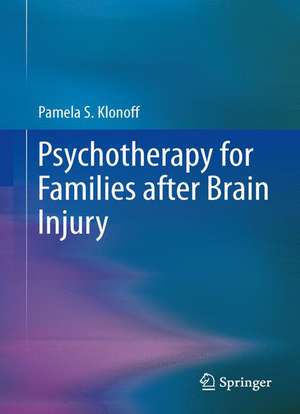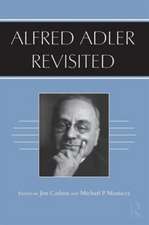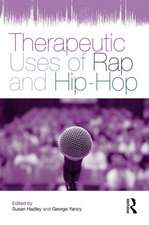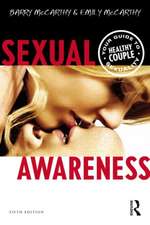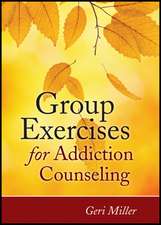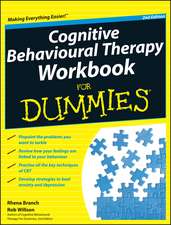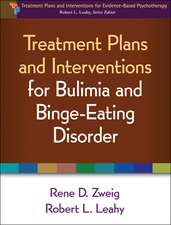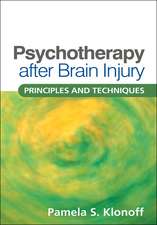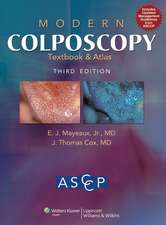Psychotherapy for Families after Brain Injury
Autor Pamela S. Klonoffen Limba Engleză Hardback – 18 apr 2014
Psychotherapy for Families after Brain Injury offers theoretical frameworks and eclectic techniques for working effectively with adult patients and their families at the initial, active and post-treatment phases of rehabilitation. This practical reference clarifies roles and relationships of the support network in interfacing with the loved one and addresses the understandably devastating and sometimes derailing emotions and psychosocial adversities. The content promotes psychoeducation and guided exercises, delineates “helpful hints” and coping tools and proffers multimedia resources to overcome hurdles. Constructs of awareness, acceptance and realism for all parties are woven throughout, along with ideas to enhance the support network’s commitment, adjustment, positivity, hope and longevity. Case excerpts, instructive quotes from caregivers and nuggets of clinical advice assist in analyzing these and other topics in salient detail:
- The impact of brain injury on different family members.
- Treatment themes in early family sessions.
- Family therapy for moderate to severe brain injury, concussion and postconcussion syndrome.
- Family therapy after organic brain injury: stroke, anoxia, tumor, seizure disorders.
- Family group treatment during active rehabilitation.
- End-of-life and existential considerations and positive aspects of care giving.
- Aftercare group therapy for long-term needs.
| Toate formatele și edițiile | Preț | Express |
|---|---|---|
| Paperback (1) | 707.13 lei 6-8 săpt. | |
| Springer Us – 3 sep 2016 | 707.13 lei 6-8 săpt. | |
| Hardback (1) | 959.82 lei 6-8 săpt. | |
| Springer Us – 18 apr 2014 | 959.82 lei 6-8 săpt. |
Preț: 959.82 lei
Preț vechi: 1170.51 lei
-18% Nou
Puncte Express: 1440
Preț estimativ în valută:
183.68€ • 191.53$ • 152.66£
183.68€ • 191.53$ • 152.66£
Carte tipărită la comandă
Livrare economică 21 martie-04 aprilie
Preluare comenzi: 021 569.72.76
Specificații
ISBN-13: 9781489980823
ISBN-10: 1489980822
Pagini: 508
Ilustrații: XIII, 492 p. 23 illus.
Dimensiuni: 155 x 235 x 33 mm
Greutate: 0.86 kg
Ediția:2014
Editura: Springer Us
Colecția Springer
Locul publicării:New York, NY, United States
ISBN-10: 1489980822
Pagini: 508
Ilustrații: XIII, 492 p. 23 illus.
Dimensiuni: 155 x 235 x 33 mm
Greutate: 0.86 kg
Ediția:2014
Editura: Springer Us
Colecția Springer
Locul publicării:New York, NY, United States
Public țintă
Professional/practitionerCuprins
Introduction and Overview.- Families’ Early Sessions, Emotional Status and Treatment Themes.- The Impact of Brain Injury on Different Family Members.- Family Psychotherapy after Moderate to Severe Traumatic Brain Injury.- Family Psychotherapy for Concussions and the Post concussive Syndrome.- Family Psychotherapy after Stroke and Anoxic Brain Injury.- Family Psychotherapy after a Brain Tumor.- Family Psychotherapy for Seizure Disorders.- Family Group.- Loved Ones’ End of Life and Existential Considerations as a Caregiver.- Aftercare Group for Long Range Needs.
Recenzii
“Pamela Klonoff’s Psychotherapy for Families After Brain Injury is an impressive, ambitious reference for neuropsychologists and their students interested in working with families. … The book will likely prove useful to family therapists, helping them most to understand the common consequences and challenges faced by families after brain injury. … The book is comprehensive, up-to-date, and filled with information likely to help readers more effectively help families.” (Jeffrey S. Kreutzer, PsycCRITIQUES, Vol. 60 (20), May, 2015)
Notă biografică
Pamela Klonoff, Ph.D. has been clinical director of the Center for Transitional Neurorehabilitation at the Barrow Neurological Institute of St. Joseph’s Hospital and Medical Center in Phoenix, Arizona since 1993. The Center treats a population of adolescents and adults with brain injury. Dr. Klonoff received her doctorate in philosophy from University of Victoria and her MS degree from the University of British Columbia. She is a diplomate in clinical Neuropsychology from the American Board of Professional Psychology, a Fellow of the National Academy of Neuropsychology, and is a member of the American Psychological Association and the American Academy of Bereavement. She is on the editorial board of Neuropsychological Rehabilitation and Archives of Physical Medicine and Rehabilitation. She is the author of several books, most recently Psychotherapy After Brain Injury (2010, Guilford Press).
Textul de pe ultima copertă
Whether caused by illness, accident, or incident, brain injury requires multi-tiered resources for the patient and considerable external care and support. When recovery is sidelined by depression, anger, grief, or turmoil, family members and the support network have critical roles to play and need their own guidance and compassionate therapeutic interventions.
Psychotherapy for Families after Brain Injury offers theoretical frameworks and eclectic techniques for working effectively with adult patients and their families at the initial, active, and post-treatment phases of rehabilitation. This practical reference clarifies roles and relationships of the support network in interfacing with the loved one and addresses the understandably devastating and sometimes derailing emotions and psychosocial adversities. The content promotes psychoeducation and guided exercises, delineates “helpful hints” and coping tools, and proffers multimedia resources to overcome hurdles. Constructs of awareness, acceptance, and realism for all parties are woven throughout, along with ideas to enhance the support network’s commitment, adjustment, positivity, hope, and longevity. Case excerpts, instructive quotes from caregivers, and nuggets of clinical advice assist in analyzing these and other topics in salient detail:
The hands-onapproach demonstrated in Psychotherapy for Families after Brain Injury will enhance the demanding work of a range of professionals, including neuropsychologists, clinical psychologists, rehabilitation psychologists, family therapists, marriage and family counselors, psychiatrists, behavioral/mental health counselors, clinical social workers, rehabilitation specialists such as speech-language pathologists, physical, and occupational therapists, and graduate students in the helping professions.
Psychotherapy for Families after Brain Injury offers theoretical frameworks and eclectic techniques for working effectively with adult patients and their families at the initial, active, and post-treatment phases of rehabilitation. This practical reference clarifies roles and relationships of the support network in interfacing with the loved one and addresses the understandably devastating and sometimes derailing emotions and psychosocial adversities. The content promotes psychoeducation and guided exercises, delineates “helpful hints” and coping tools, and proffers multimedia resources to overcome hurdles. Constructs of awareness, acceptance, and realism for all parties are woven throughout, along with ideas to enhance the support network’s commitment, adjustment, positivity, hope, and longevity. Case excerpts, instructive quotes from caregivers, and nuggets of clinical advice assist in analyzing these and other topics in salient detail:
- The impact of brain injury on different family members.
- Treatment themes in early family sessions.
- Family therapy for moderate to severe brain injury, concussion, and postconcussion syndrome.
- Family therapy after organic brain injury: stroke, anoxia, tumor, seizure disorders.
- Family group treatment during active rehabilitation.
- End-of-life and existential considerations and positive aspects of caregiving.
- Aftercare group therapy for long-term needs.
The hands-onapproach demonstrated in Psychotherapy for Families after Brain Injury will enhance the demanding work of a range of professionals, including neuropsychologists, clinical psychologists, rehabilitation psychologists, family therapists, marriage and family counselors, psychiatrists, behavioral/mental health counselors, clinical social workers, rehabilitation specialists such as speech-language pathologists, physical, and occupational therapists, and graduate students in the helping professions.
Caracteristici
Family therapy for diverse neurological populations and family configurations Theoretical/conceptual overview and a wealth of hands-on treatment techniques Includes case studies and holistic treatment approaches Includes handouts for clinicians and family members Includes supplementary material: sn.pub/extras
